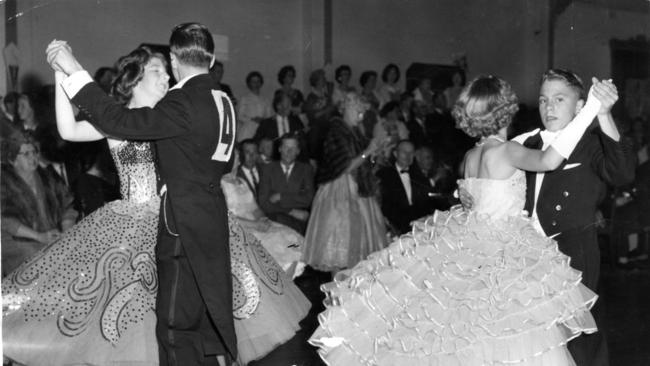This one’s for you, Mum
When you’re 95 you’ve seen a few changes. In which decade did things change the most?

My mother turns 95 today. She is in pretty good health, all things considered. I asked if she wouldn’t mind sharing her views on how Australia has changed during her lifetime. She was happy to oblige.
I started by asking what her parents (born in the 1890s) might think of Australia today. “Oh, all the modern things we have, they would be amazed.” I thought: she is referring to the internet, to social media and mobile phones. So I asked, “What things?” She replied, “Things like the electric blanket.” I was a bit taken aback but then I realised: she didn’t live in a house with electricity until 1947. To her and her parents, the great advances related to the most basic aspects of daily life.
I then asked, in which decade did things change the most? She didn’t hesitate. “The 1960s.” Mum is devoutly religious; I suspected she was referring to the sexual freedoms of the era. But no, she said the greatest change came through school. “In the 1960s, kids were asked their opinion,” she told me. “They were taught how to think. I was taught what to think.” Mum started school during the Great Depression. She had barely five years of primary school; the rest was by correspondence from remote farmhouses in Western Victoria. To her, access to a school, to be asked for her opinion, was something to be savoured.
When I was 12, Mum and I would play endless games of Scrabble. She would explain if a word came from the Latin or the Greek. She read voraciously, did (and still does) crosswords, and could do arithmetic in her head. All largely self-taught.
I asked if she had ever been concerned for the future of Australia. I was thinking she would say “1942”. Finally, I was right. “The Japanese were coming. They bombed Darwin. But then the Americans came. We started winning after Guadalcanal.” The first movie she saw? “Oh, that’s easy, The Wizard of Oz when I was 14.” Apparently it was screened in a community hall near Warrnambool.
I asked what made the most difference to her life as a young mother. “Oh, that would be when we got a washing machine in 1953. We paid it off over 12 months.” Mum had six kids and used cloth nappies. Washing was arduous; it involved lighting a wood-fired copper in the wash house, scrubbing clothes on a washboard, putting them through a mangle and pegging them out to dry. It’s instructive that she refers to how she paid for the washing machine; Mum managed the household finances.
We got a refrigerator in 1957. The sewerage came through in 1963, delivering a flushing toilet. We got a second-hand television in 1964. Not many people had telephones. When dad’s father died in the 1960s, we found out about it via a neighbour who had one. What I find revealing is the binding force of community; the way access to an appliance brought people together. I wonder if this was because of necessity or whether we were more community-minded back then.
I asked Mum for her thoughts about Australia today, and into the future. “Oh, it’s a wonderful country,” she said. “You look at all the trouble in other places; I wouldn’t want to live anywhere else.” Her proudest achievement? (I knew what she would say.) “Oh, that would be my family, my grandchildren, and their children; every day they give me such joy.”
Had my mother been born a generation later she would have gone to university, and who knows what she could have achieved? But while this idea occurs to me, it doesn’t bother her. She is content to be at the centre of her large and loving family – and at the grand age of 95, it’s a pretty good place to be.




To join the conversation, please log in. Don't have an account? Register
Join the conversation, you are commenting as Logout